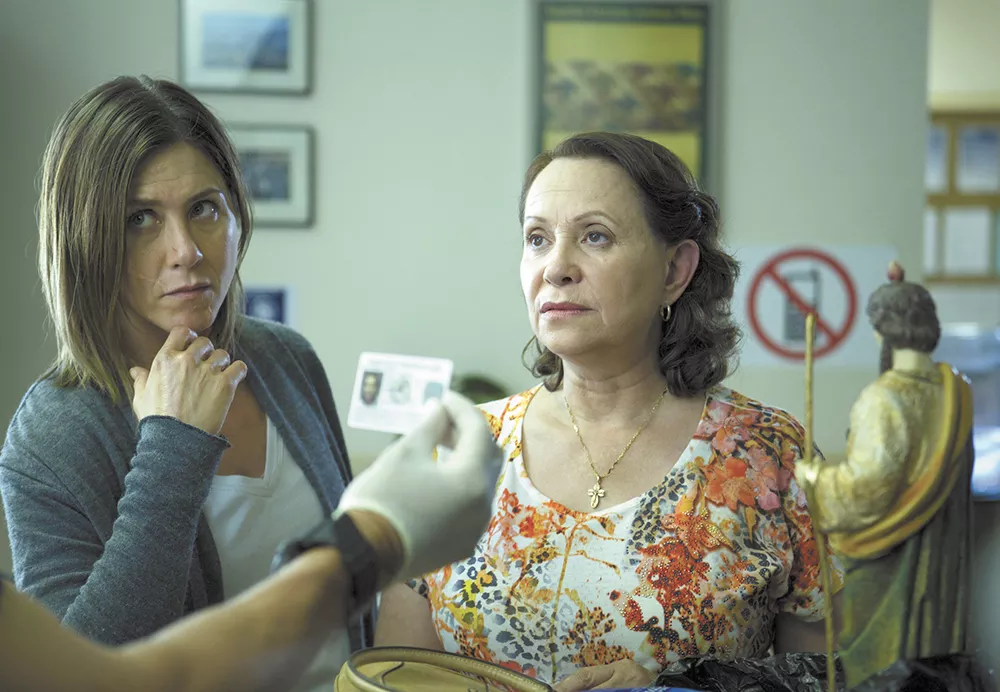I sometimes wonder why people want to see movies about someone who is suffering. Like The Elephant Man, My Left Foot, The Theory of Everything. Does it make them feel better about their own lives? Maybe, in the case of those three films, it was the remarkable performance by the lead actor.
That's sure the case with Cake, in which Jennifer Aniston plays Claire Bennett, a woman who is dealing with chronic pain due to an accident that's never discussed in detail. When we meet Claire, she's had pins in her legs for more than a year, and there's been no improvement in her pain level for six months.
She's frustrated, angry, antagonistic. She has no patience for others, even those in her chronic pain support group — which has been caught off guard by the suicide of one of its members, Nina. But Claire can't get caught up in Nina's decision to end her pain by jumping off a freeway overpass. She's too busy dealing with her own problems. She can walk around, but only slowly, and with a grimace. She's addicted to painkillers, which only work for a little while. Her marriage has fallen apart. She has scars on her legs and face. She's stopped caring about the way she looks.
Her nasty attitude, complete with salty language, is so bad she gets kicked out of the support group, by phone. Her relationship with her husband has gone so far south, he, too, uses the phone to leave a message for her: He wants to come by the house to pick up his stuff when she's not home.
Why would anyone want to see what sounds like such a bleak movie? For many reasons, among them Aniston's measured and sure portrayal of a woman going through such a rough time but never giving up; a terrific supporting role by Mexican actress Adriana Barraza (Amores Perros) as her hardworking, endlessly patient housekeeper Silvana; a series of cameos by Anna Kendrick as Nina, who keeps making "ghostly" appearances; and the fact that although this is a sad, sad movie, it also contains bright lights of dark humor.
There's no straightforward story here. It's more of a series of peeks at Claire's circumstances and condition. Moaning and sighing more than she speaks, Claire sometimes has to put up a positive front when dealing with others. She can be herself and relax just a little when Silvana is around, because Silvana is so caring. She can completely relax, and even be pretty much free from pain, when she soothingly floats around in a swimming pool.
A glimmer of a story takes shape when curiosity gets the best of her, and she sets out on a search to figure out why Nina went the suicide route. This involves Silvana driving her around, while she lies down in the back of the car. A couple of the stops she makes are at the overpass where Nina jumped, and the home where Nina lived with her husband Roy (Sam Worthington), who appears calm and quiet, but reveals himself to be bitter and to hate Nina for what she did to him/them. Claire wears pain all over her body; Roy wears it just on his face.
The film gets odder as Nina's "visits" with Claire, usually at inopportune moments, become more frequent and more bizarre. More and more layers of Claire's poignant story are slowly and subtly revealed, and there's not much doubt that before it's over, before her droll sense of humor gets to bloom, before the title of the film is explained, you'll get to like her. ♦

